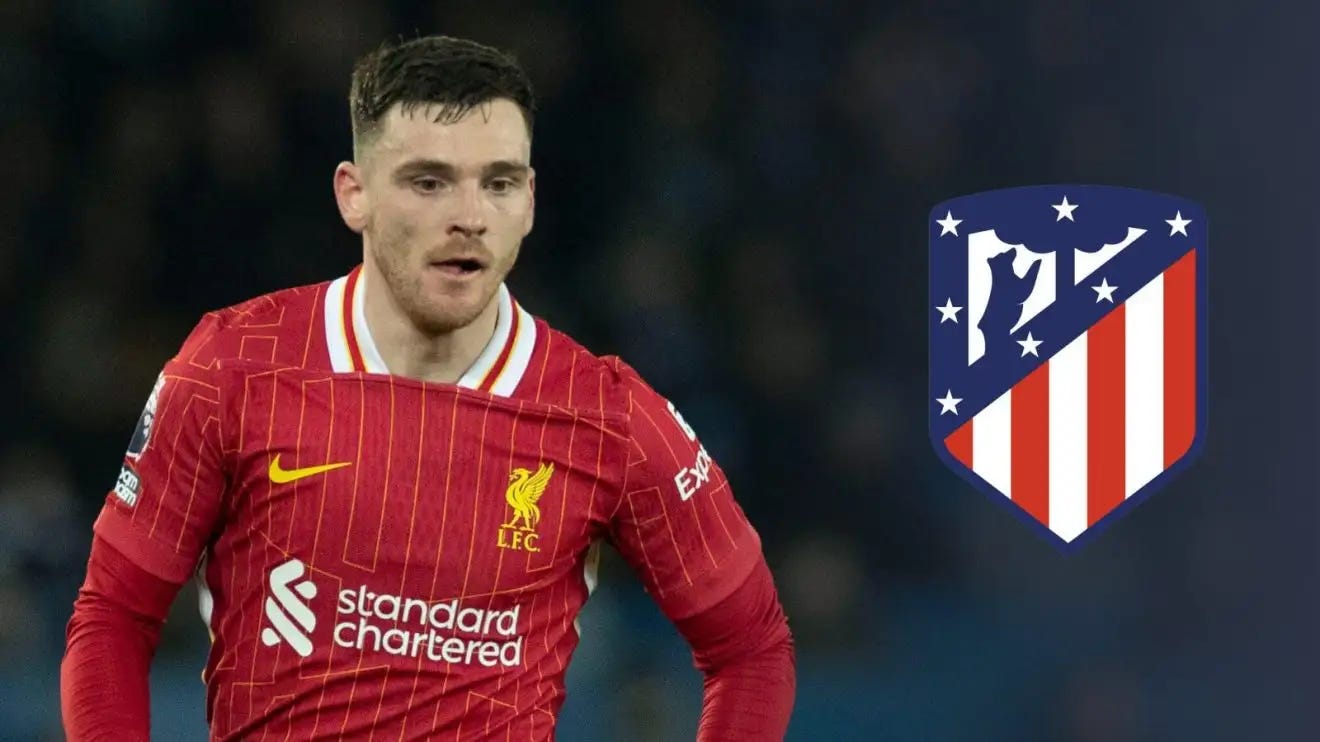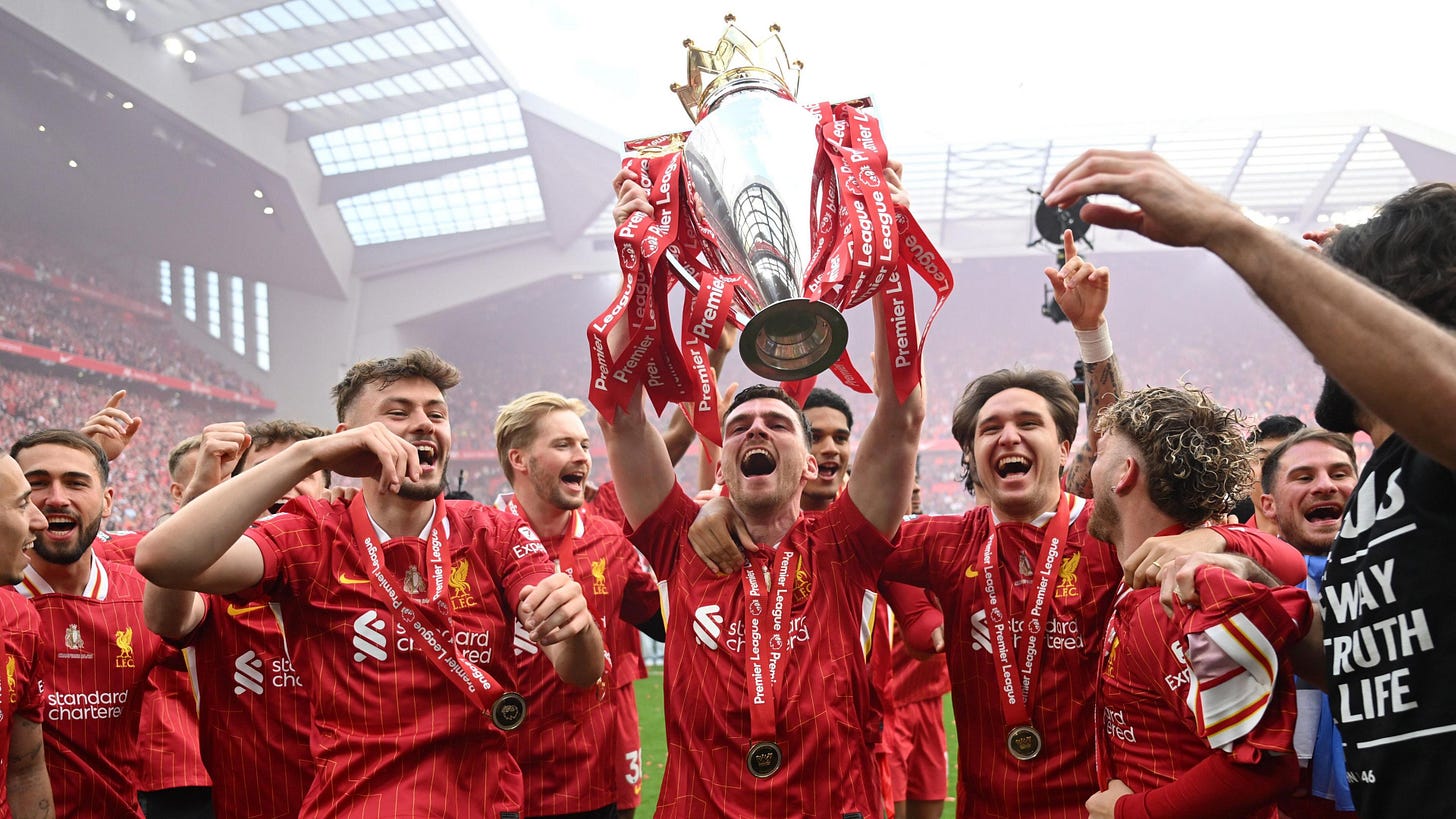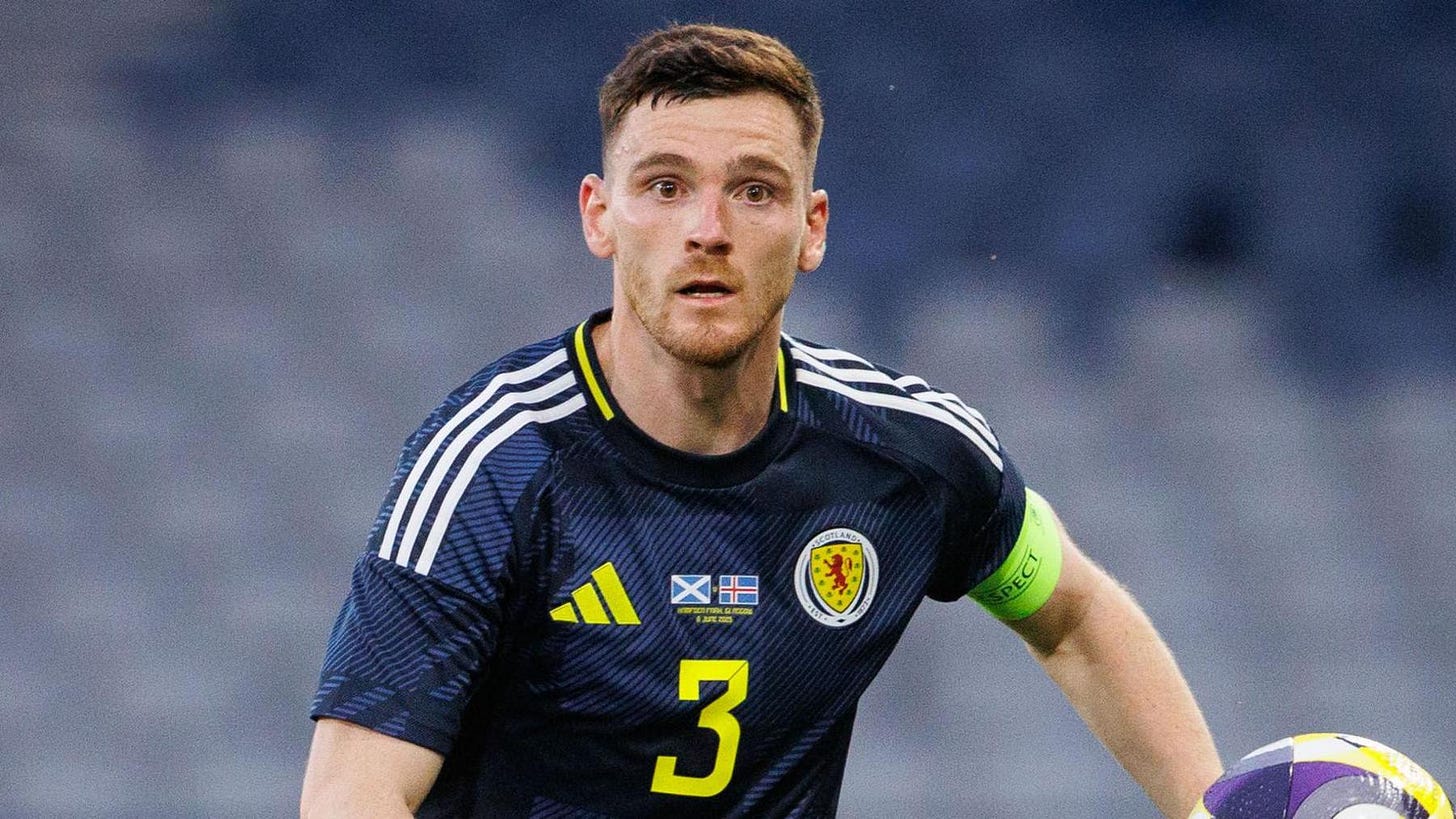Andy Robertson, Liverpool and the Relentless March of Time
As a proud Scotsman and lifelong Red, I find myself conflicted.
Some football moments catch you off guard, not because they are surprising, but because they arrive with a finality you were trying not to consider. The suggestion that Andy Robertson could leave Liverpool this summer is one of those moments. As a proud Scotsman and lifelong Red, I find myself conflicted. But beneath the emotion lies a cold, necessary truth: Liverpool must evolve, and we cannot keep letting players walk out the door for free.
Robertson has been a totemic presence in this team for nearly a decade. Signed in 2017 for £8 million from a relegated Hull City side, he turned scepticism into admiration through sheer drive and consistent excellence. His contribution to Liverpool’s success cannot be overstated, yet it is also true that football waits for no one.
Time Catches Every Player Eventually
At 31, Robertson is not finished but is past his prime. That is the natural order of things. He still brings intensity, leadership and heart, but the pace has dipped, the recovery runs are that half-step slower, and the injury spells are becoming more frequent. These are not signs of weakness; they are reminders of time.
The numbers do not lie either. Liverpool are reportedly about to spend over £40 million on Milos Kerkez, a physically robust, Premier League-proven left-back who made 38 starts for Bournemouth last season. That kind of outlay does not suggest a rotational role. It indicates a starter. Whether Robertson likes it or not, and I suspect he does not, his role is changing.
That matters because Robertson has always been about more than football. He is a symbol of the modern Liverpool era. His work ethic reflects the city, and his grit demonstrates the club’s values. Losing him feels bigger than just a transfer. However, sentiment has to stop being the deciding factor in these situations.
Selling with Sense, Not Emotion
If Robertson stays, he is unlikely to start regularly. That puts him on the bench, earning around £160,000 a week. Compare that to Tsimikas, a natural deputy who earns less than half of that. Or Kerkez, who, by all estimates, would arrive on a more modest wage. It is easy to see why the club would be willing to consider offers.
Reports even suggest Atletico Madrid have shown interest. Some claim they want Robertson for free, which is cheeky at best and insulting at worst. But even a fee in the region of £8 to £10 million, combined with the wage savings, starts to make financial sense. The total benefit to the club could reach £20 million. That is not insignificant, especially considering the alternative is watching him leave for nothing in a year.
And that is what Liverpool have done far too often. We have watched contracts run down and assets leave without compensation. It cannot continue. Clubs like ours need to be smarter. Selling players when they still hold value is not being cold but professional. You do not build sustainable success by clinging to memories.
The truth is, Robertson's profile is still attractive to a club like Atletico. He fits their model: aggressive, tactically disciplined, battle-hardened. You could argue he is the archetype of a Simeone player. But that also means they see the value he still has. Liverpool should too, and that value must come with a fee.
Leadership, Legacy and Letting Go
The intangible argument for keeping Robertson centres around his leadership. That is fair. He is part of a senior group that has helped shape the dressing room culture. In times of transition, players like him offer continuity. They guide the next wave. That matters. But we cannot pretend leadership only comes from those who have been here the longest.
New leaders will emerge. Some are already here. Some will be bought. This squad is in flux, but that is also by design. Arne Slot represents a fresh chapter. Michael Edwards and Richard Hughes drive a more ruthless approach behind the scenes. And that ruthlessness is not a bug; it is the point.
We cannot afford to repeat the mistakes of the past. The exits of James Milner, Jordan Henderson and others in recent windows carried emotional weight. But we came through it. Sometimes, change is not just healthy, it is essential. That is where we are now. Robertson's exit, while painful, could be part of the necessary next step.
And it is worth saying this: Robertson himself may want to leave. At 31, he likely believes he can start at a high level every week. He probably can. But that is unlikely to be at Liverpool. A move to a club like Atletico Madrid, with a manager who values defensive commitment and a warrior spirit, might suit him. It could even extend his career.
Evolution Over Nostalgia
What Liverpool are doing now is what elite clubs must do. We are replacing. We are rebuilding. Not just positions, but philosophies. Slot will coach the team, not manage it in the old sense. Data, strategy and long-term planning will drive recruitment decisions. That means hard calls. And it means letting go of players before they fade completely.
In this system, everyone has a price. That includes fan favourites. That includes Scotsmen who feel like part of the club’s DNA. And that, difficult as it may be to accept, includes Andy Robertson.
There is also a more strategic element at play. With the homegrown quota rules in the Premier League, Robertson has value beyond what he offers on the pitch. If we lose him and others like Joe Gomez or Harvey Elliott, we need to replace that quota with intent. It complicates squad planning, but it does not outweigh the logic of cashing in while we can.
We also need to break the cycle of losing experienced players for nothing. Contract strategy has to be proactive, not reactive. Letting Robertson leave for a modest fee this summer is preferable to letting him go for free next year, no matter how much we love the man.
That is the new Liverpool way: a high-performance culture backed by innovative business. Edwards is back, and with him comes a colder, more clinical edge to the club’s operations. It may look ruthless from the outside, but inside, it is all about sustained competitiveness.
We are not just rebuilding a team; we are future-proofing a club.
And Robertson, as much as it pains me to say it, is part of the past.
That is not to diminish what he gave us. He has been the best left-back of the modern Liverpool era. Possibly the best the club has ever had. His energy, his assists, his understanding with Sadio Mane during that glorious period, and his ability to show up week after week when the legs of others were fading. He embodied what this team stood for.
But now, we must look forward.
Legacy Secured, Time to Move On
If Robertson goes this summer, he leaves with his head held high. He leaves a champion, a leader, and a legend. He leaves having redefined what it means to play left-back for Liverpool. And most of all, he leaves at a time when it still feels like his decision, not one made for him.
That is how you honour a player’s legacy. You do not let them fade on the bench. You do not keep them around to tick sentimental boxes. You let them write the final chapter with dignity.
That is why I support the idea of selling him now, for a fee, while there is still some control over the narrative. Let him chase a new challenge, keep starting, and go as Andy Robertson, not as a forgotten backup.
I will miss him, of course. But I will also celebrate him.
And I will trust that Liverpool, in doing what must be done, are walking the right path.
Because at the end of the day, this club is not about the past. It is about the next moment, the next trophy, the next evolution.
And that means making hard choices, even about players we love.




